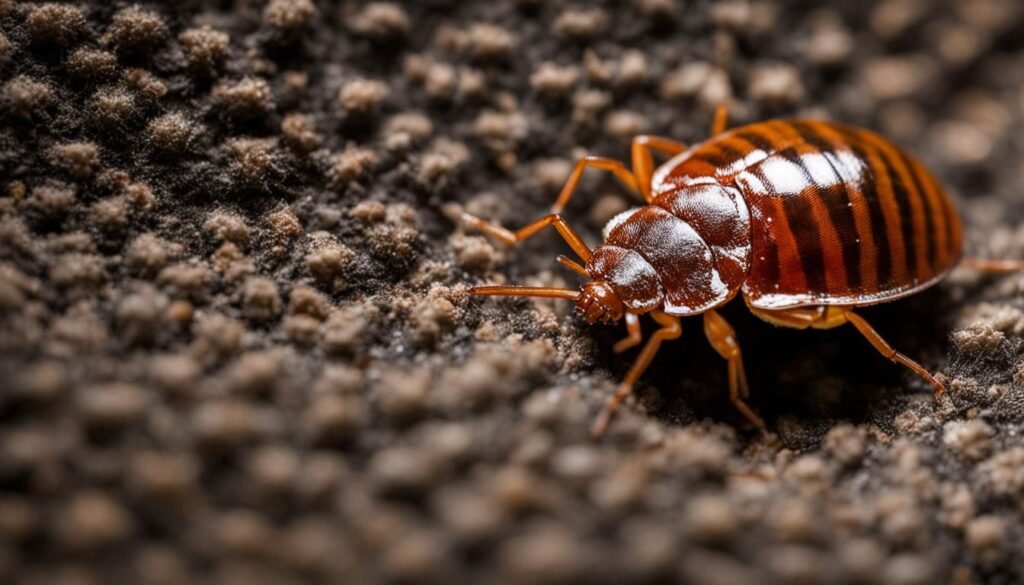How Long Does Bed Bug Treatment Take to Work?
Table of Contents:
Dealing with a bed bug infestation can be a frustrating and stressful experience. One of the most common questions people have is: “How long does bed bug treatment take to work?” The duration of bed bug treatment can vary depending on several factors, including the level of infestation and the size of your home.
In general, bed bug treatment typically takes anywhere from 2-4 treatment sessions over 3-6 weeks to eliminate these pests. However, it’s important to note that each situation is unique, and the treatment timeline can vary.
A very small infestation in a studio apartment might be fully treated after the first session, which usually takes 1-3 hours. However, in larger homes with severe infestations in multiple rooms, 3-4 or more treatment sessions may be required. It’s important to work closely with a professional pest control expert who can assess your specific situation and provide an accurate timeline for the treatment to take effect. They will also be able to recommend the most effective treatment methods for your particular infestation.
How Long Does Bed Bug Treatment Take to Work? Key Takeaways:
- Bed bug treatment generally takes 2-4 treatment sessions over 3-6 weeks.
- The duration of treatment depends on the level of infestation and the size of the home.
- A small infestation in a studio apartment might be fully treated after the first session.
- Larger homes with severe infestations may require multiple treatment sessions.
- Consulting with a professional pest control expert is crucial in determining the most effective treatment timeline.
It’s worth noting that bed bug treatment is not a one-time solution. Even after the treatment is complete and the majority of bed bugs have been eliminated, some may still survive if they were hiding in hard-to-reach areas during the treatment. This is why it’s important to continue monitoring for any signs of reinfestation and follow the recommended preventive measures to ensure long-term success in getting rid of bed bugs.
Remember, effective bed bug treatment requires patience, persistence, and professional guidance. By working with a pest control expert, you can ensure that your treatment plan is tailored to your specific needs and that you achieve successful results promptly.
How Long Does It Take Bed Bugs to Die After Extermination?
The effectiveness of bed bug treatment is a crucial consideration for homeowners dealing with infestations. After undergoing the extermination process, many individuals wonder how long it will take for bed bugs to die. Understanding the timeline for bed bug treatment response time can help set realistic expectations and gauge the effectiveness of the treatment.
The bed bug treatment process is designed to eliminate most bed bugs by the end of the extermination session, typically lasting 1-3 hours. However, it’s important to note that some bed bugs may survive if they were hiding in hard-to-reach areas during the treatment. This is why multiple treatment sessions are often required to ensure complete eradication.
By following the recommended preparation steps before the treatment begins, you can enhance the effectiveness of the extermination process. These steps often include decluttering the affected areas, vacuuming thoroughly, and washing or disposing of infested items. By preparing your home properly, you create an environment that maximizes the treatment’s efficacy and decreases the chance of bed bugs surviving.
Working with a professional pest control expert who can design a comprehensive treatment plan tailored to your specific situation is essential. They have the knowledge and expertise to identify bed bug hiding places and select the most effective treatment methods. By adhering to the recommendations provided by the exterminator, you can optimize the bed bug treatment response time and increase its success rate.
Important things to consider:
- Bed bug treatment is designed to eliminate most bed bugs by the end of the extermination session.
- However, some bed bugs may survive if they were hiding during the treatment, necessitating multiple treatment sessions.
- Following the recommended preparation steps before treatment enhances its effectiveness.
- Working with a professional exterminator ensures a comprehensive treatment plan and increases the chances of success.
How Long Does It Take for Bed Bugs to Show Up Again After Treatment?
After undergoing bed bug treatment, it’s natural to wonder how long it will take for these resilient pests to resurface. While bed bug activity can vary depending on various factors, understanding the potential reinfestation time and signs of bed bug resurgence is crucial in maintaining a pest-free environment.
Bed bugs that have survived the treatment may show signs of activity shortly after the extermination process. Although it can be alarming, it’s essential to closely observe areas where bed bugs were previously found to determine if any are still moving.
If no movement is observed, it may indicate that the treatment has been effective in eliminating the bed bugs. However, it is strongly recommended to continue monitoring the situation for a few days to ensure complete eradication.
Furthermore, using sticky adhesive traps placed around the legs of the bed can be a valuable tool in detecting any remaining bed bugs that may be on the move.
By following these precautions and vigilantly monitoring your surroundings, you can provide additional assurance of a successful treatment outcome and minimize the chances of bed bug re-infestation.
To enhance your understanding of bed bug activity and treatment effectiveness, refer to the following table:
| Bed Bug Treatment Effectiveness Period | Signs of Bed Bug Resurgence |
|---|---|
| Immediately after treatment | No visible movement of bed bugs |
| A few days after treatment | No new bites or signs of bed bug activity |
| One week after treatment | No new bites, no signs of bed bug activity, and no presence of bed bug excrement |

It’s important to note that the timeline for bed bug resurgence can vary depending on factors such as the severity of the infestation, the effectiveness of the treatment, and the level of cleanliness and maintenance in the treated area.
By remaining vigilant and proactive in observing any signs of bed bug activity, you can promptly address any potential resurgence and maintain a bed bug-free environment.
How Long Can Bed Bugs Lay Dormant?
Bed bugs are resilient pests that can enter a dormant state, patiently waiting for the right conditions to reemerge. Understanding the bed bug dormancy period is crucial for effective pest management and prevention of reinfestation.
Under optimal conditions, such as consistent temperatures and access to a host, bed bugs can survive in a dormant state for over a year. However, in typical home environments, the bed bug dormancy period is usually shorter, averaging around six months.
Even after undergoing a thorough bed bug treatment, there is still a risk of dormant bed bugs remaining in your home. The length of bed bug dormancy can vary, and these pests may become active again for weeks, months, or even longer after treatment.
To ensure the complete elimination of all dormant bed bugs, multiple treatment sessions are often recommended. This comprehensive approach helps to address any surviving bed bugs that may have avoided exposure to treatment during their dormant phase.
It’s important to note that bed bug reactivation time can also depend on various factors, such as temperature fluctuations, availability of hosts, and the proximity of potential hiding places. Proper monitoring and ongoing vigilance are essential to detect any signs of bed bug resurgence and promptly address them.
Comparison of Bed Bug Dormancy Periods
| Conditions | Average Dormancy Period |
|---|---|
| Optimal conditions (consistent temperature, access to a host) | Over a year |
| Typical home environments | Around six months |
A proper understanding of the bed bug dormancy period is essential for effective pest control and prevention measures. By being aware of their survival capabilities and implementing thorough treatment strategies, you can increase the chances of successfully eliminating these persistent pests and ensuring a bed bug-free environment.

Conclusion
How Long Does Bed Bug Treatment Take to Work? Let’s find out.
In conclusion, the effectiveness of bed bug treatment can vary depending on the level of infestation and the thoroughness of the treatment process. Typically, it takes 2-4 treatment sessions spread over 3-6 weeks to eliminate bed bugs. However, it’s important to note that each situation is unique, and the timeline for bed bug treatment may differ.
For optimal results, it is crucial to follow the recommended preparation steps before the treatment begins. This includes thoroughly cleaning the affected areas, removing clutter, and washing bedding and clothing in hot water. By preparing your home properly, you can enhance the effectiveness of the treatment and improve the chances of success.
After the completion of the treatment, it is advisable to continue monitoring for any signs of re-infestation. Although the treatment may have eliminated the majority of bed bugs, it is still possible for a few surviving bugs to resurface. By closely observing the treated areas and employing sticky adhesive traps, you can detect any remaining bed bugs and take necessary action.
To ensure successful and timely bed bug eradication, it is recommended to consult with a professional pest control expert. They have the knowledge, experience, and resources to provide effective bed bug treatment tailored to your specific situation. With their expertise, you can minimize the duration and maximize the effectiveness of the treatment, providing you with peace of mind and a bed bug-free home.
FAQ
How Long Does Bed Bug Treatment Take to Work?
Bed bug treatment typically takes anywhere from 2-4 treatment sessions over a period of 3-6 weeks to completely eliminate bed bugs. The duration of the treatment depends on the level of infestation and the size of the house. Each situation is unique, and the treatment timeline can vary.
How Long Does It Take Bed Bugs to Die After Extermination?
The bed bug treatment process is designed to kill the majority of bed bugs by the end of the extermination session, which usually takes 1-3 hours. However, some bed bugs may survive if they were hiding in hard-to-reach areas. That’s why multiple treatment sessions are often required for complete elimination.
How Long Does It Take for Bed Bugs to Show Up Again After Treatment?
Bed bugs that have survived the treatment can show activity right away. It’s important to observe the places where you found them before and closely monitor for their movement. If no movement is observed, it may indicate that the treatment was successful. However, it’s recommended to continue monitoring for a few days to ensure complete eradication.
How Long Can Bed Bugs Lay Dormant?
Bed bugs are capable of surviving dormant for more than a year under the right conditions. However, in most home environments, their dormant period is shortened to about half a year. Bed bugs can lie dormant even after a thorough treatment, and they may become active weeks or months later. This is why multiple treatment sessions are often recommended to ensure complete elimination of all dormant bed bugs.
Conclusion
Bed bug treatment typically takes 2-4 treatment sessions over a period of 3-6 weeks to completely eliminate bed bugs. The effectiveness of the treatment may vary depending on the level of infestation and the thoroughness of the treatment process. It is important to follow the recommended preparation steps before the treatment and to continue monitoring for any signs of reinfestation after the treatment is complete. Consulting with a professional pest control expert can help ensure successful and timely bed bug eradication.